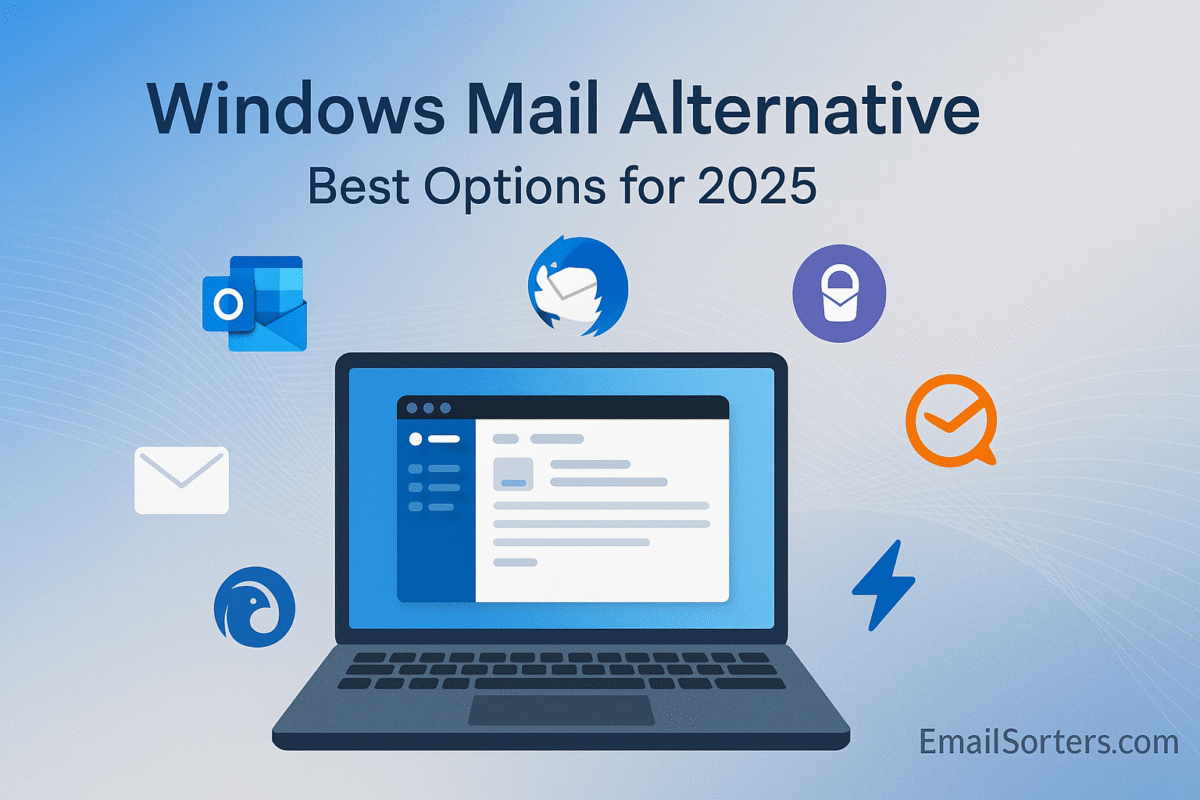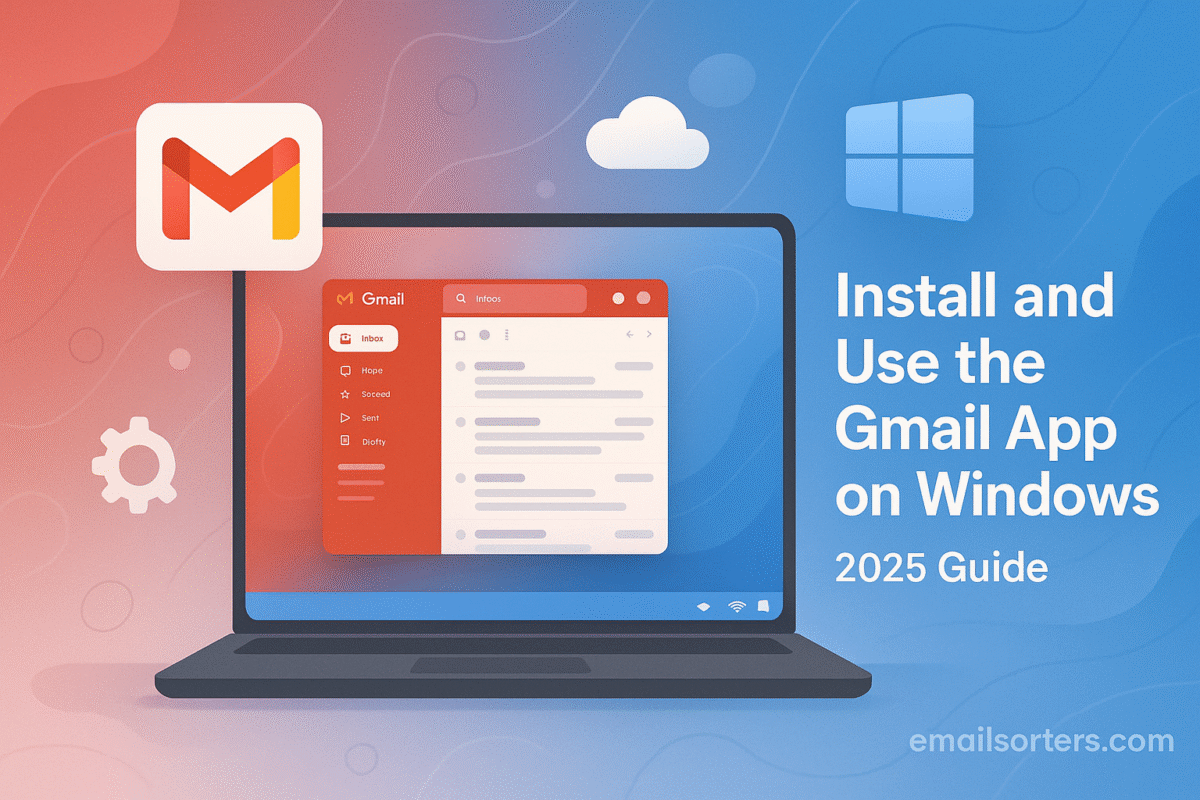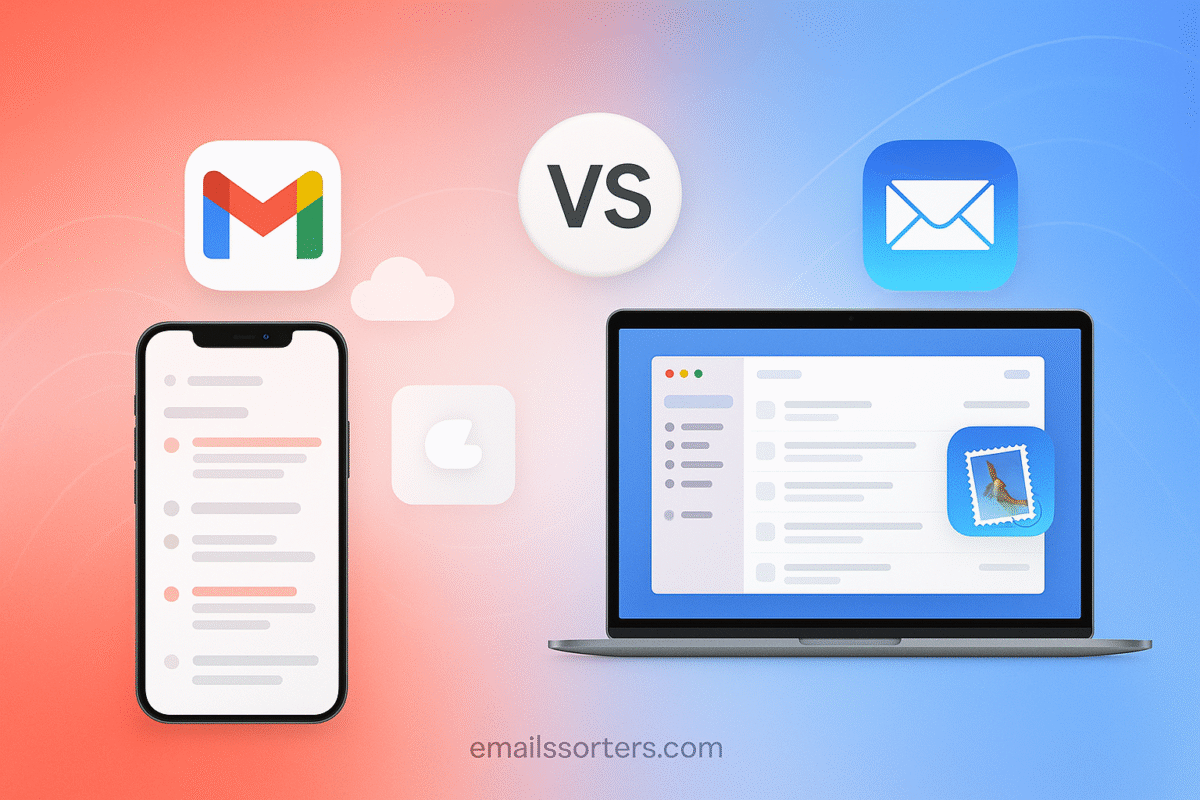Outlook alternatives for desktop email clients are in high demand as more users look for tools that match modern workflows. While Microsoft Outlook remains popular, it doesn’t fit everyone’s needs. Some find it too heavy, too complex, or simply outdated for the way they manage email today.
In 2025, desktop email clients offer more variety than ever. Whether you want faster performance, a cleaner interface, advanced security, or seamless integrations with your favorite apps, there’s an alternative built for you. From lightweight clients designed for speed to powerful platforms with unified inboxes and collaboration tools, the options go well beyond Outlook’s traditional setup.
In this guide, we’ll highlight the best Outlook desktop alternatives for both personal and professional use, breaking down their features, usability, and unique advantages. By the end, you’ll know exactly which email client fits your workflow—whether you’re looking for simplicity, flexibility, or enterprise-grade power.
Mailbird
Key Features
Mailbird is designed for users who want speed, simplicity, and integration without sacrificing function. It supports a unified inbox, intuitive drag-and-drop email management, and built-in productivity apps like Google Calendar, WhatsApp, Slack, and Facebook Messenger. Features like message snoozing, speed reader, and native LinkedIn lookup streamline communication tasks into one window.
Search is fast and accurate, while tab-style navigation keeps things neat. Contact management is clean and accessible, and support for multiple accounts; whether Gmail, Exchange, IMAP, or POP3; is seamless.
Supported Platforms
- Windows only
Unique Strengths
Mailbird shines through its clean design and deep integration with non-email tools. The UI feels modern and fast, with no extra configuration required. Its productivity-first focus makes it especially appealing to users who want their email client to double as a hub for daily workflow.
Who Should Use It
Professionals on Windows looking for a streamlined interface, unified inbox, and built-in app integration. Mailbird suits users who value convenience, performance, and modern UX without complex setup.
Thunderbird
Key Features
Thunderbird is a veteran in the email client space. Backed by Mozilla, it’s open-source, deeply customizable, and continuously updated. It supports IMAP, POP, RSS feeds, OpenPGP encryption, and account-specific configuration.
Built-in features include a powerful search engine, conversation view, tabbed email browsing, and a full-featured calendar via the Lightning add-on. Users can enhance functionality with hundreds of extensions and themes.
Supported Platforms
- Windows
- macOS
- Linux
Unique Strengths
Thunderbird stands out for its flexibility. Users can shape the interface, behaviors, and security features to their exact needs. Add-ons allow advanced filtering, auto-responders, and third-party service integration. It’s the only email client on this list that gives you total control at every level, from privacy to UI.
Who Should Use It
Privacy-conscious users, developers, and those comfortable with customization. Also ideal for users seeking a free, open-source solution that doesn’t skimp on features or compatibility.
eM Client
Key Features
eM Client combines email, calendar, contacts, and tasks into a unified platform. It supports Gmail, Exchange, Office 365, and virtually any IMAP/POP account. Features include robust calendar tools, a built-in chat client, delayed send, translation, and PGP encryption.
The interface is polished, with smooth layout switching between mail, calendar, and tasks. The search tool is highly efficient, and color-coded tags help organize emails visually.
Supported Platforms
- Windows
- macOS
Unique Strengths
eM Client is the most Outlook-like alternative in terms of full-suite functionality. It’s a strong option for users who want mail and calendar under one roof without relying on Microsoft.
The interface is more business-oriented, making it a favorite among users transitioning from Outlook who want similar structure but better speed.
Who Should Use It
Small businesses, freelancers, or individual users who rely on scheduling and contact management alongside their email. Also well-suited for users moving away from Outlook who need familiar layout and integrated features.
Mailspring
Key Features
Mailspring is a lightweight, open-source email client focused on speed and essential functionality. It supports Gmail, Office 365, Yahoo, IMAP, and more. Features include email snoozing, send later, signature management, and translation.
Its standout is performance; Mailspring is built on a lean engine and syncs messages efficiently. It’s also one of the most stylish clients in this category, with modern theming and compact layouts.
Supported Platforms
- Windows
- macOS
- Linux
Unique Strengths
Mailspring is optimized for performance on low-resource systems. It’s fast to install, light on memory, and runs smoothly on older hardware. The UI is attractive and user-friendly, with just enough features to satisfy daily needs without becoming bloated.
Who Should Use It
Users with older computers, minimal email management needs, or those looking for a clean and focused inbox. It’s also a good secondary email client for those separating personal from professional accounts.
The Bat!
Key Features
The Bat! is a power-user’s email client known for its rich feature set and advanced security tools. It supports PGP and S/MIME encryption, message templates, scheduling, and rule-based automation. The interface is utilitarian, prioritizing function over form.
It’s highly configurable; from keyboard shortcuts to folder structures; and supports virtually any email protocol.
Supported Platforms
- Windows
Unique Strengths
Security and automation. The Bat! is built with privacy in mind and often used by IT professionals, researchers, and users who need high-volume email processing and secure correspondence.
Who Should Use It
Users who handle sensitive communications, need granular message rules, or value encryption and technical control over appearance. Not recommended for beginners or those looking for a friendly interface.
Canary Mail
Key Features
Canary Mail brings a privacy-first approach wrapped in a slick, user-friendly interface. It supports end-to-end encryption, read receipts, natural language search, smart filters, and AI-based prioritization. It works with Gmail, iCloud, Office 365, Yahoo, and any IMAP service.
The app also supports unified inbox, undo send, and integrated calendar, making it more than just a basic email tool.
Supported Platforms
- macOS
- Windows
- iOS
- Android
Unique Strengths
Canary Mail is one of the few email clients that balances strong encryption with modern design and cross-platform consistency. It’s built for users who care deeply about both usability and privacy. Its mobile and desktop apps sync seamlessly, offering a unified experience.
Who Should Use It
Users who want a clean interface but won’t compromise on privacy. It’s especially useful for executives, lawyers, or teams dealing with sensitive communications across platforms.
How to Choose the Right Alternative
For Privacy-Conscious Users
Go with Thunderbird, The Bat!, or Canary Mail. Each supports encryption and offers controls that limit data exposure. Thunderbird stands out for transparency, The Bat! for technical depth, and Canary Mail for end-to-end encryption with a modern UI.
For Power Users and Customization
Choose Thunderbird or The Bat! if you want full control over filters, layouts, templates, and encryption. Both are highly customizable and built for users who want to tailor every aspect of their email experience.
For Simplicity and Speed
Mailbird and Mailspring are best for users who want fast, clean, and easy-to-use interfaces. Mailbird focuses on productivity integrations, while Mailspring is lightweight and efficient for minimalists.
For All-in-One Personal Productivity
eM Client offers a full personal productivity suite with email, calendar, contacts, and tasks. If you’re replacing Outlook’s all-in-one function, eM Client is the closest fit; especially if you don’t want a subscription.
Conclusion: Outlook Isn’t the Only Option Anymore
The desktop email landscape in 2025 is more diverse and capable than ever. Whether you want something fast and intuitive, deeply secure, fully customizable, or loaded with features beyond email; there’s a client that fits your needs better than Outlook. Each option listed here brings a unique advantage, from Mailbird’s integrations to Thunderbird’s freedom, eM Client’s all-in-one tools to The Bat!’s security, and Canary’s encryption to Mailspring’s minimalist design.
No single app suits everyone, and that’s the strength of today’s email ecosystem. Outlook still serves many well, but if you’re ready for a change, these alternatives prove that modern email can be smarter, safer, and more satisfying to use.




